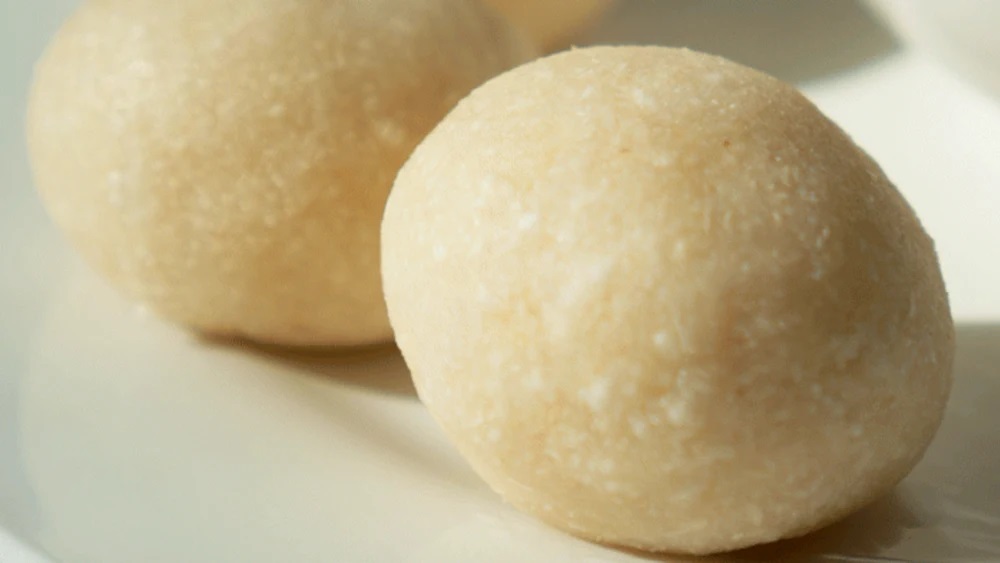Eba is a traditional Nigerian food made from cassava, a starchy root vegetable. It is a staple in Nigerian cuisine and is popularly consumed across various regions of the country. To prepare Eba, cassava is peeled, boiled, and then ground into a smooth, stretchy, and dough-like consistency. The resulting dough is often served alongside soups, stews, or sauces. Eba is typically enjoyed by taking a small portion of the dough and using it to scoop up the soup or sauce. It serves as a carbohydrate-rich base that complements the flavours of the accompanying dishes. Eba is valued not only for its taste and versatility, but also for its role in cultural traditions and social gatherings. Eba, a Nigerian staple made from cassava, offers several benefits:
1. Rich in carbohydrates: Eba is a good source of energy due to its high carbohydrate content.
2. Gluten-Free: It’s suitable for those with gluten sensitivities.
3. Nutrient source: It contains vitamins and minerals like vitamin C, folate, and potassium.
4. Gut health: Cassava’s fiber content can promote a healthy digestive system.
5. Satiety: Eba can help you feel full, aiding in portion control.
6. Cultural significance: It’s a staple in Nigerian cuisine, reflecting cultural traditions.
7. Versatility: Eba pairs well with various soups and stews, increasing meal variety.
8. Budget-friendly: Cassava is relatively inexpensive, making eba an affordable option.
9. Sustainable crop: Cassava is drought-tolerant, contributing to food security.
10. Local economy: Consuming eba supports local farmers and agricultural communities.



